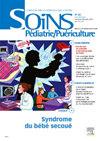[父母,新生儿疼痛管理的合作伙伴]。
Q4 Nursing
Soins Pediatrie/Puericulture
Pub Date : 2025-07-01
Epub Date: 2025-06-19
DOI:10.1016/j.spp.2025.05.010
引用次数: 0
摘要
让父母参与疼痛管理可以促进住院新生儿的健康并提高他们的技能。由于非药物策略易于实施,父母可以融入伙伴关系,在痛苦护理期间为孩子提供宝贵的支持和优化的镇痛。这种做法完全符合以儿童和家庭为中心的发展照料理念,即承认父母是儿童的首要保护者。本文章由计算机程序翻译,如有差异,请以英文原文为准。
[Parents, partners in newborn pain management].
Involving parents in pain management promotes the well-being of hospitalized newborns and enhances their skills. Thanks to non-pharmacological strategies that are simple to implement, parents can be integrated into a partnership, providing valuable support and optimized analgesia for their child during painful care. This approach is fully in line with the philosophy of child- and family-centred developmental care, recognizing parents as their child's first protectors.
求助全文
通过发布文献求助,成功后即可免费获取论文全文。
去求助
来源期刊

Soins Pediatrie/Puericulture
Nursing-Pediatrics
CiteScore
0.10
自引率
0.00%
发文量
76
期刊介绍:
La revue Soins Pédiatrie/Puériculture adresse aux infirmières et aux puéricultrices désireuses améliorer leur prise en charge de le enfant de 0 a 16 ans, tant a hopital que en structure médico-sociale ou en milieu scolaire. Soins Pédiatrie/Puériculture couvre tout le champ de la pédiatrie, de la périnatalité a adolescence
 求助内容:
求助内容: 应助结果提醒方式:
应助结果提醒方式:


